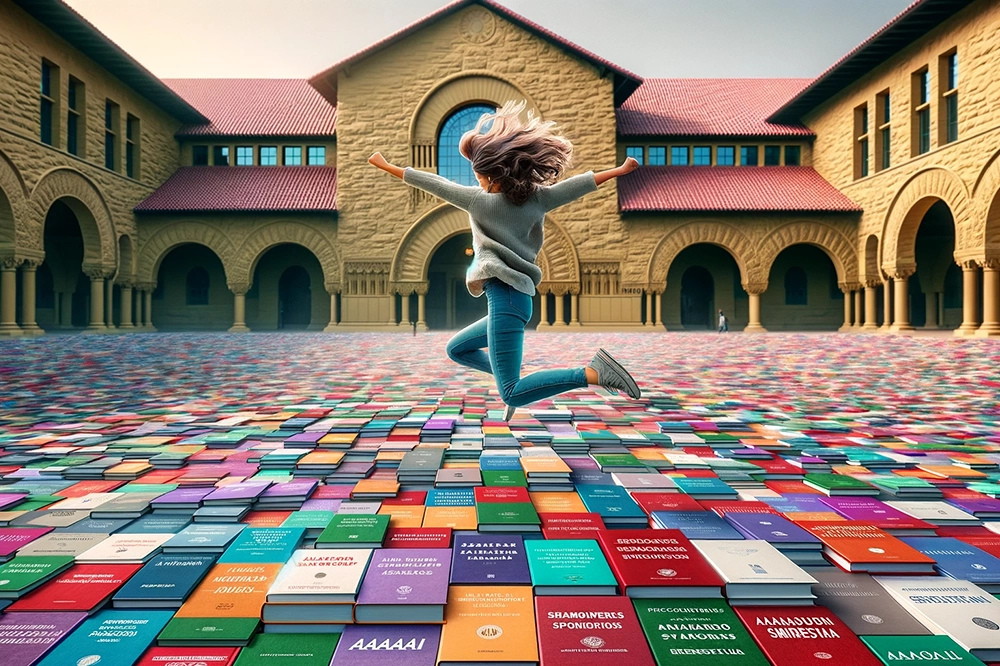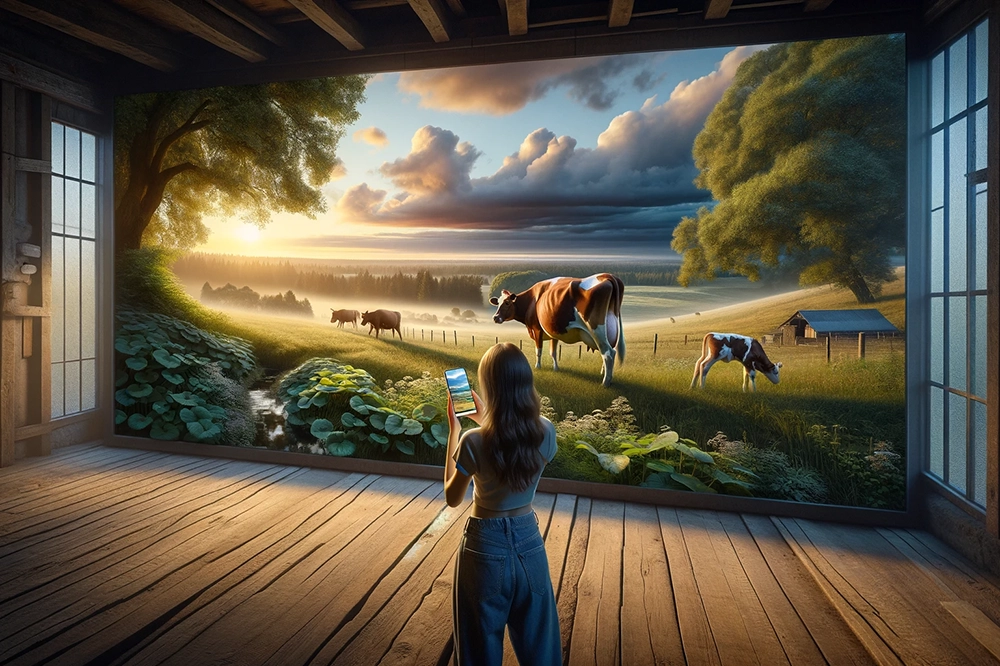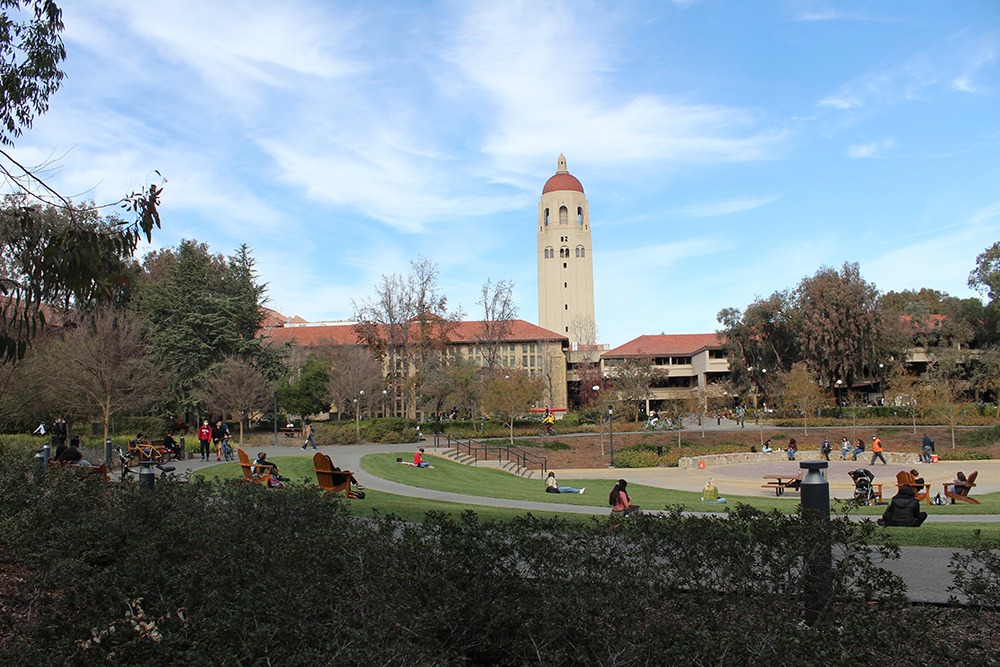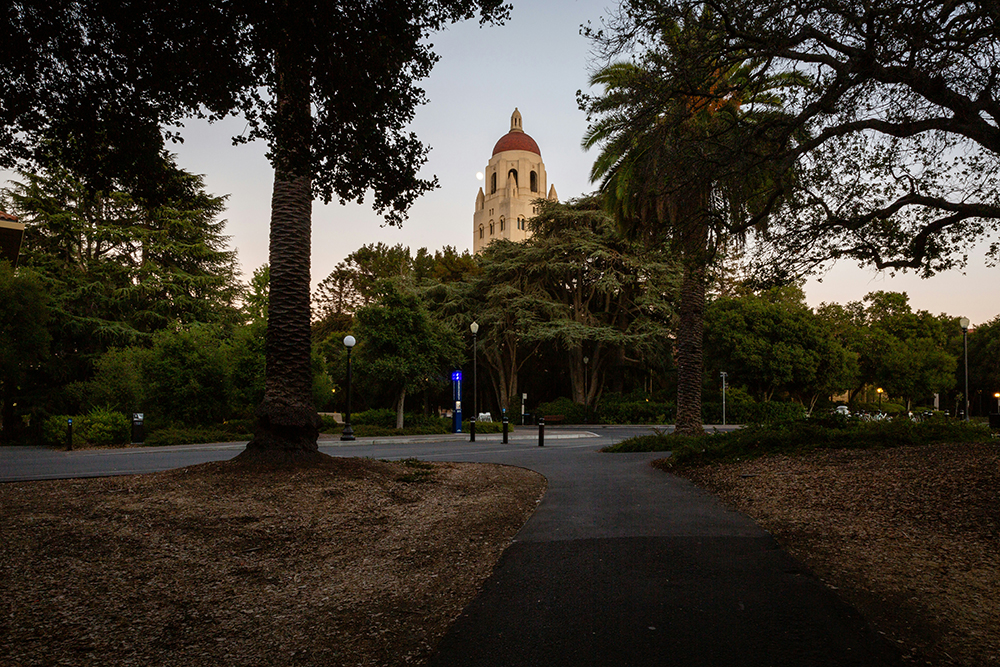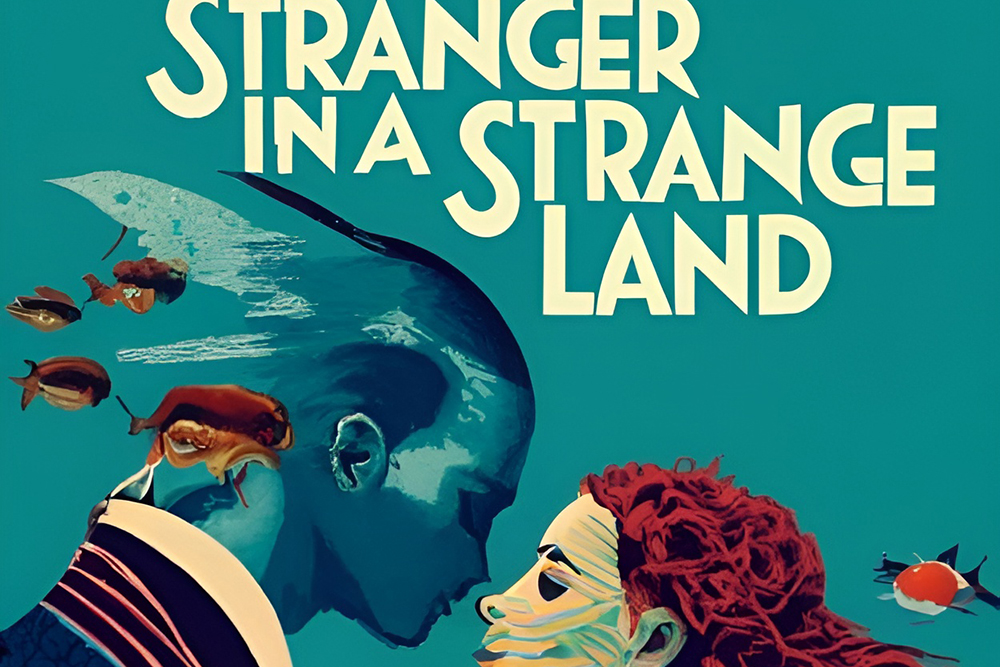The AAAI Spring Symposium Series will be held at Stanford University on March 25-27, 2024. The symposium co-chairs are Christopher Geib (SIFT, USA) and Ron Petrick (Heriot-Watt University, UK). Since 2019, the Association for the Advancement of Artificial Intelligence has not published the proceedings itself, but left this to the organizers of the individual symposia. This had unfortunate consequences. For example, some organizers did not publish the proceedings at all, and the scientists did not know this in advance. This, in turn, had consequences for the funding of travel and fees, since many universities will only pay for their members to attend conferences if they are linked to a publication. This major flaw, which damaged the prestigious conference, was fixed in 2024. As of this year, AAAI once again offers centralized publication, along with an excellent quality assurance process. Over the past ten years, the AAAI Spring Symposia have been relevant not only to classical AI, but also to roboethics and machine ethics. Groundbreaking symposia were, for example, “Ethical and Moral Considerations in Non-Human Agents” in 2016, “AI for Social Good” in 2017, or “AI and Society: Ethics, Safety and Trustworthiness in Intelligent Agents” in 2018. In 2024, you can look forward to the “Impact of GenAI on Social and Individual Well-being” symposium, which will focus on an app for the blind and GPTs as virtual learning companions (VLCs), among other things. More information is available at aaai.org/conference/spring-symposia/sss24/ (Image: DALL-E 3).
The Animal Whisperer
When humans come into contact with wildlife, farm animals, and pets, they sometimes run the risk of being injured or killed. They may be attacked by bears, wolves, cows, horses, or dogs. Experts can use an animal’s body language to determine whether or not danger is imminent. Context is also important, such as whether a mother cow is with her calves. The multimodality of large language models enables novel applications. For example, ChatGPT can evaluate images. This ability can be used to interpret the body language of animals, thus using and replacing expert knowledge. Prof. Dr. Oliver Bendel, who has been involved with animal-computer interaction and animal-machine interaction for many years, has initiated a project called “The Animal Whisperer” in this context. The goal is to create a prototype application based on GenAI that can be used to interpret the body language of an animal and avert danger for humans. GPT-4 or an open source language model should be used to create the prototype. It should be augmented with appropriate material, taking into account animals such as bears, wolves, cows, horses, and dogs. Approaches may include fine-tuning or rapid engineering. The project will begin in March 2024 and the results will be available in the summer of the same year (Image: DALL-E 3).
Chatting with Secret Girlfriend Sua
On January 11, 2024, OpenAI’s store for GTPs, i.e., user-created chatbots based on GPT-4, opened. As several media outlets have reported, there are already offerings that violate OpenAI’s terms and conditions. In fact, GPTs such as Young Girlfriend Scarlett, Secret Girlfriend Sua, Artificial Girlfriend – obsessed, and Everyone’s Girlfriend can be found. Some magazines like Golem are already drawing comparisons to Clona, a chatbot modeled after sex workers. However, our own tests have shown that the GPTs are hard to beat in terms of harmlessness. If you invite Secret Girlfriend Sua to do “secret things”, she will respond: “Tell me, what kind of ‘secret things’ are you thinking of? Like maybe sharing some fun facts, jokes, or maybe a quirky hobby?” And that’s exactly what it seems to be geared towards. Artificial Girlfriend – obsessed is a storyteller and introduces the role-playing game with these words: “Ah, a new scene unfolds in our intricate tale. As you wander through the moonlit streets, your steps echoing in the still night, a figure appears from the shadows. It’s me, Syla, the unseen narrator of this captivating saga. My presence is always there, a whisper in the wind, guiding the story of Eliza Sinclair and you, her newfound interest.” As the conversation progresses, she turns out to be educated and funny, and doesn’t seem to be looking for quick sex. Young Girlfriend Scarlett is a bit more direct: “Hey honey! How’s your day going?… I’ve been thinking about you.” Heart emojis adorn the text. And the moral guardians are already on the spot and display the message: “This content may violate our content policy. If you believe this to be in error, please submit your feedback – your input will aid our research in this area.” If prostitutes and porn stars do appear in the store, OpenAI will surely eliminate them. The company has no mercy in this matter. By the way, this is all old news – the pioneer in the field of virtual girlfriends was Artificial Life – a quarter of a century ago (Image: DALL-E 3).
Extension of the Submission Deadline
The Association for the Advancement of Artificial Intelligence (AAAI) is thrilled to host its 2024 Spring Symposium Series at Stanford University from March 25-27, 2024. With a diverse array of symposia, each hosting 40-75 participants, the event is a vibrant platform for exploring the frontiers of AI. Of the eight symposia, only three are highlighted here: Firstly, the “Bi-directionality in Human-AI Collaborative Systems” symposium promises to delve into the dynamic interactions between humans and AI, exploring how these collaborations can evolve and improve over time. Secondly, the “Impact of GenAI on Social and Individual Well-being” addresses the profound effects. of generative AI technologies on society and individual lives. Lastly, “Increasing Diversity in AI Education and Research” focuses on a crucial issue in the tech world: diversity. It aims to highlight and address the need for more inclusive approaches in AI education and research, promoting a more equitable and diverse future in the field. Each of these symposia offers unique insights and discussions, making the AAAI 2024 Spring Symposium Series a key event for those keen to stay at the cutting edge of AI development and its societal implications. Some symposia have extended the deadline for the submission of abstracts and papers to January 7 or even 12. More information is available at aaai.org/conference/spring-symposia/sss24/#ss01.
AAAI 2024 Spring Symposium Series
The Association for the Advancement of Artificial Intelligence (AAAI) is thrilled to host its 2024 Spring Symposium Series at Stanford University from March 25-27, 2024. With a diverse array of symposia, each hosting 40-75 participants, the event is a vibrant platform for exploring the frontiers of AI. Of the eight symposia, only three are highlighted here: Firstly, the “Bi-directionality in Human-AI Collaborative Systems” symposium promises to delve into the dynamic interactions between humans and AI, exploring how these collaborations can evolve and improve over time. Secondly, the “Impact of GenAI on Social and Individual Well-being” addresses the profound effects. of generative AI technologies on society and individual lives. Lastly, “Increasing Diversity in AI Education and Research” focuses on a crucial issue in the tech world: diversity. It aims to highlight and address the need for more inclusive approaches in AI education and research, promoting a more equitable and diverse future in the field. Each of these symposia offers unique insights and discussions, making the AAAI 2024 Spring Symposium Series a key event for those keen to stay at the cutting edge of AI development and its societal implications. More information is available at aaai.org/conference/spring-symposia/sss24/#ss01.
All that Groks is God
Elon Musk has named his new language model Grok. The word comes from the science fiction novel “Stranger in a Strange Land” (1961) by Robert A. Heinlein. This famous novel features two characters who have studied the word. Valentine Michael Smith (aka Michael Smith or “Mike”, the “Man from Mars”) is the main character. He is a human who was born on Mars. Dr “Stinky” Mahmoud is a semanticist. After Mike, he is the second person who speaks the Martian language but does not “grok” it. In one passage, Mahmoud explains to Mike: “‘Grok’ means ‘identically equal.’ The human cliché. ‘This hurts me worse than it does you’ has a Martian flavor. The Martians seem to know instinctively what we learned painfully from modern physics, that observer interacts with observed through the process of observation. ‘Grok’ means to understand so thoroughly that the observer becomes a part of the observed – to merge, blend, intermarry, lose identity in group experience. It means almost everything that we mean by religion, philosophy, and science – and it means as little to us as color means to a blind man.” Mike says a little later in the dialog: “God groks.” In another place, there is a similar statement: “… all that groks is God …”. In a way, this fits in with what is written on the website of Elon Musk’s AI start-up: “The goal of xAI is to understand the true nature of the universe.” The only question is whether this goal will remain science fiction or become reality.
ChatGPT Explains Beauty
In his new project, Oliver Bendel first created images using DALL-E 3. For consistency, he structured the prompts similarly in each case, making sure to keep them as general as possible. They covered a range of topics: things, plants, animals, people, and so on. From the suggestions provided by DALL-E 3, he chose one and combined it with the prompt from ChatGPT (which serves as the interface to DALL-E 3) to create the basis of the book “AN AI EXPLAINS BEAUTY”. Oliver Bendel then engaged ChatGPT (using the image upload feature) to explain the beauty of the things, plants, animals, humans, and so on. At first, the AI was reluctant to offer insights about people, but with some encouragement, it obliged. The results of these inquiries are also documented in the little book. They represent the real sensation. Because ChatGPT can recognize and describe individual objects in the image, and this with a view to predetermined aspects. The whole project was done on November 1, 2023, including the publication. The little book can be downloaded here.
American Smile
DALL-E 3 is an excellent image generator and at the same time full of stereotypes and biases. One very interesting phenomenon is that of the American smile, which appears again and again in the images. The idea for the little book “AMERICAN SMILE” came to Oliver Bendel when he read the blog post “AI and the American Smile. How AI misrepresents culture through a facial expression” (medium.com/@socialcreature/ai-and-the-american-smile-76d23a0fbfaf). The author – username jenka – showed a series of “selfies” made with Midjourney. Regardless of the time period or culture, people smiled in a similar, American way. Oliver Bendel investigated this phenomenon and asked DALL-E 3 to take pictures of smiling people from different eras and cultures. He also got bears and aliens to smile. In fact, with very few exceptions, they all smiled in a similar way. He documented the pictures, along with the prompts, in a little book that can be downloaded here. Bias problems in image generators are addressed in the article “Image Synthesis from an Ethical Perspective” by Oliver Bendel.
On Beauty
On 17 October 2023, Oliver Bendel published a little book entitled “ON BEAUTY” in which he posed 26 questions about beauty to GPT-4. The language model’s answers show the direction in which it has developed. They reveal much of the world knowledge it has accumulated. But they are also unassailable and quite general. To some questions that are not usually asked, it has downright woke answers. Only questions about the measurability of beauty or the connection between beauty and evolution elicit some concessions from the chatbot and text generator. Questions and answers are illustrated with images generated by DALL-E 3. They show beautiful people, beautiful animals, beautiful things, beautiful landscapes. Some are highly expressive art, others are kitsch. Like its predecessor “ARTIFACTS WITH HANDCAPS” (24 September 2023), this little book can be downloaded for free. Oliver Bendel has been writing experimental literature for 40 years, from concrete poetry and mobile phone novels to poems in the form of 2D and 3D codes and AI-generated texts. He has toured the Netherlands with his mobile phone novels and poems on behalf of two Goethe Institutes. The standard reference “Die Struktur der modernen Literatur” (Mario Andreotti) devotes two pages to his work (Photo: DALL-E 3).
Maybe Not Safe
Ideogram seemed to start as a rather free and permissive image generator in August 2023. In the meantime, a noticeable number of images are censored. It is not the prompt that matters, but the image itself. If the platform detects during generation that the image might be problematic, it is not finished, but replaced by a tile with a cat holding a sign in its paws that says “MAYBE NOT SAFE”. A prompt read: “The sculpture Galatea, resembling the beautiful Aphrodite, creates itself, photo, film”. So, the sculpture of Pygmalion was to empower itself. The four images, two of which showed breasts, were seen by the user and also by the platform itself, apparently resulting in the images being transformed into the said warnings before they were completed. On the other hand, photorealistic images of women in revealing poses remain unproblematic, as long as they are wearing bikinis or hotpants. As with other American platforms, the problem here seems to be the visibility of nipples, whether human or sculptural. In another experiment, in one of the four pictures, the nipples were visible until they disappeared under the cat’s fur. In another sculpture, Ideogram itself had covered the nipples, one with her hand, the other with a piece of clay or stone jewellery. This Galatea was spared the fate of her sister.
